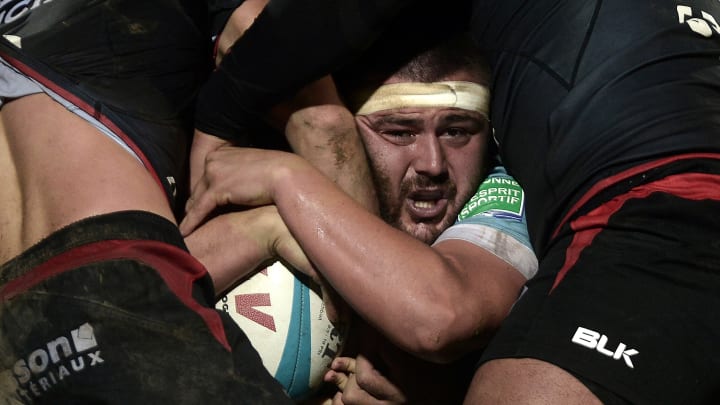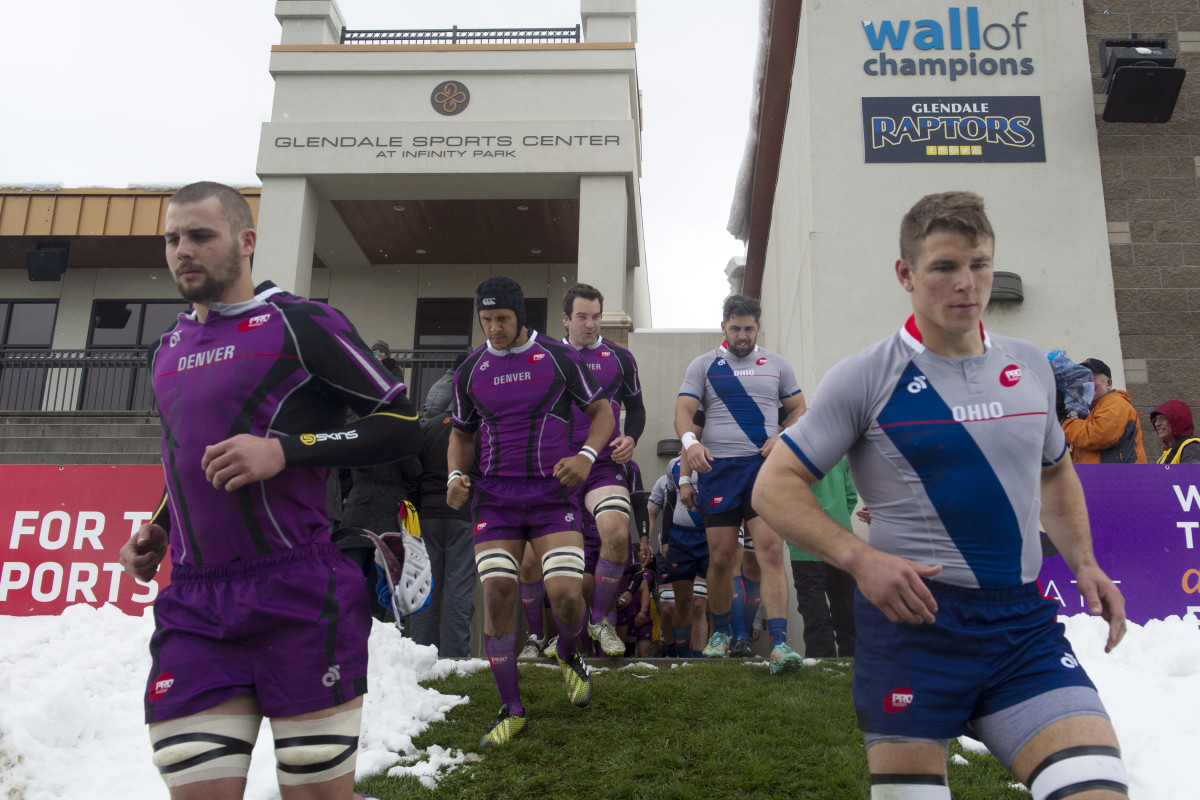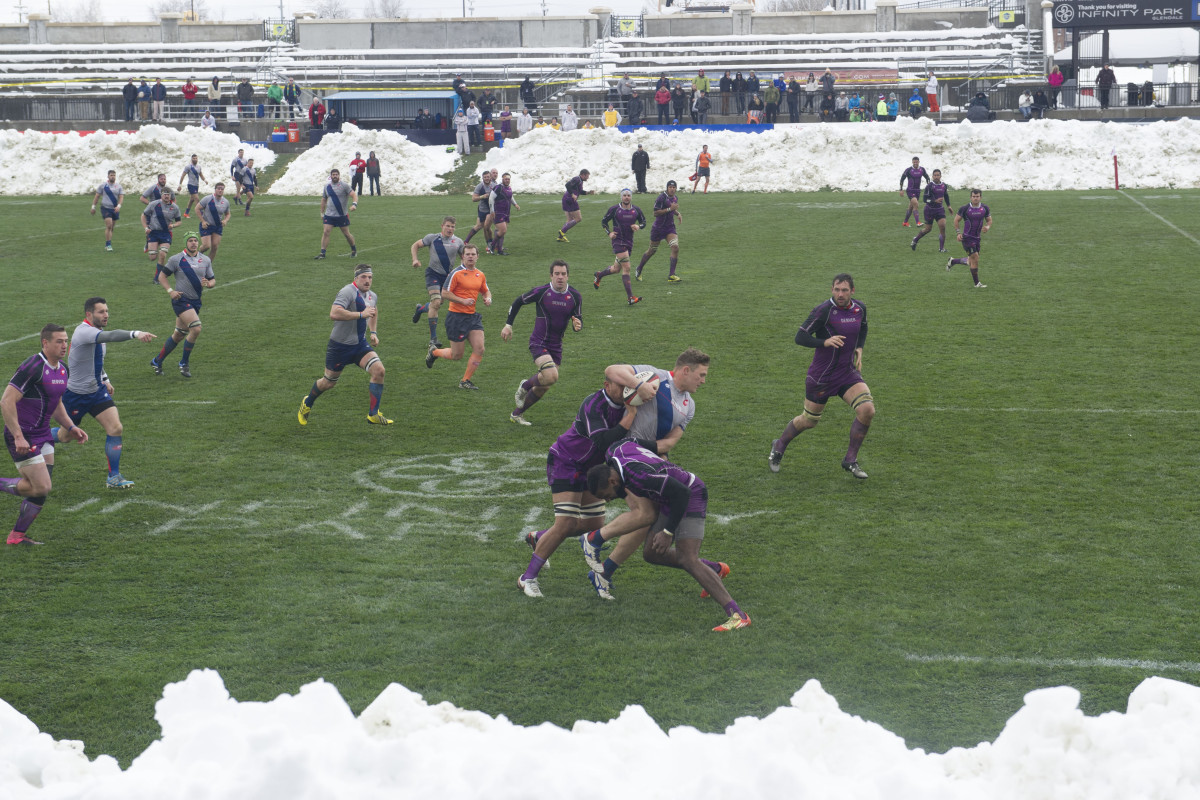A modest proposal for making professional rugby work in the United States

It’s a hooligans game, played by gentlemen. It has the physicality of football, the ebb and flow of soccer, and the speed of lacrosse. It’s rugby, and it’s the sport America needs, it just doesn’t know it yet.
In recent years, rugby has actually claimed the title as the fastest growing sport in America. More than a hundred thousand players are registered with the governing body, USA Rugby, and there are nearly 800 college teams. The Collegiate Rugby Championship attracts an estimated 30,000 attendees each spring and the Varsity Cup is broadcast nationally by NBCSN. Men’s and women’s clubs across three divisions compete annually in national tournaments, and the best of these clubs even have their own exclusive competitions, just for the added challenge.
Yet for all the vitality and growth of the amateur and college divisions, America has been unable to sustain a professional rugby union league. And our international game has suffered because of it. Our men’s national team currently ranks 17th in the world, right behind Romania, and even lost to Six Nations bottom feeder Italy in a recent match. (The women are better, recently climbing to seventh in the world, but far from elite.)
The lack of a professional rugby league not only hampers our ability to fund a national rugby program, but also prevents us from creating a system for cultivating and developing talent on a consistent basis, or from drawing talent away from other sports—especially football—and into the rugby program.

America’s most recent foray into professional rugby, the five-team PRO Rugby league, played one season before disintegrating. It was promising—the best club and college players in America, and a sprinkling of respected international players. Nevertheless, things like money, ego, USA Rugby regulations, and money again, all got in the way.
The players’ contracts were terminated en masse in December, casting doubt over whether the league will ever play another game.
“Reports of our death have been greatly exaggerated,” PRO Rugby CEO Doug Schoninger pledged in December, channeling his inner American novelist. Schoninger is adamant that the league will continue in one form or another. It doesn’t take Mark Twain to see this statement has its problems. If you have to discredit reports that your league is defunct, it’s pretty likely your league is already well on its way to going belly-up.
The death of PRO Rugby, exaggerated or not, is a shame because of the potential that dies with it. Five teams in solid locations, with quality home fields. Online streaming and small television contracts, smart social media usage, and a commitment to fan interaction and inclusive atmosphere. It should have turned out better.
So what went wrong? The reasons above, of course, but you could also make a case that USA Rugby was not ready to uphold its commitment to PRO Rugby. Or maybe the real problem is simple: America is not ready for a rugby league of its own.
Italian rugby player to miss match after being bitten on nose by dog
It seems strange as an American to criticize ambition, but PRO Rugby was too ambitious. Schoninger was hoping for a windfall that was unlikely to come, and attempted to set up his infrastructure on the assumption that the league would grow into it, with teams spread from Ohio to California. We’ve seen now, and in previous attempts, that a fully-fledged professional rugby league will struggle to carve out a market in America quickly enough to sustain itself in the long run, despite the sizeable appetite for amateur rugby.
But professional rugby is one of the keys to improve our national rugby standard, exposure, and competitiveness. So what is to be done? Perhaps, we need to go about this in a way that we as Americans aren’t used too. Maybe we need to think small, and lean on the Europeans (gasp!).
[image:13837159]
Continental Europe has three different rugby leagues. The Top14 in France is the largest, and wealthiest, of the three, and commands strong influence over TV rights and players. The Aviva Premiership is the English league, though trailing behind the Top14 in some measures, and is a strong and successful organization in its own right. The smallest league, if not by number of teams, than by market share, is the Guinness Pro12. Formerly the Celtic League, the Pro12 consists of clubs in Ireland, Scotland, Wales and more recently, Italy. The youngest of the leagues—founded in 2001—the Pro12 has been expanding and establishing itself as well as it can with its two older siblings. The clubs are stable, attendance is good, and the quality of rugby is on par with the other associations, although the Italians do their absolute best to make that a debatable claim by losing just about every game. The Pro12’s biggest problem is that a crowded TV marketplace means the league commands the smallest broadcast revenue of the three.
The Pro12 has repeatedly expressed interest in expanding into the Canadian and American markets, rebranding itself as the Guinness Atlantic Rugby Championship, and securing itself a coveted American TV deal, in order to keep up with the other two European leagues. For reference, The Top14 just signed a €97 million ($105 million) a year deal with its main television provider, and the Premiership has announced a new six year deal to increase the £38 million ($47 million) a year it worked with previously. The Pro12 operates on just £11 million ($14 million) a year from their TV deal.
For the American market, one expansion team would be a fairly safe move. International matches played in Chicago and a healthy crowd at the Premiership game played in Red Bull Stadium this fall showed that Americans want to see rugby and are willing to sell out stadiums to do it. Although the Pro12 has mentioned Houston as a possible candidate, the New York-Boston market may actually make more sense, and more money, given the region’s large Irish-American population. The 10 American metro areas with the largest Irish-American populations lie on the east coast, from Boston down to Delaware, according to Forbes. A whopping 20.4% of people in Boston claim primary Irish ancestry. Surely when names like Ulster, Leinster, Connacht, and Munster come to visit the interest of the Irish crowd will be piqued. Other parts of New York and New England have long Scottish and Welsh history. The Celtic league may find that America has a Celtic region ready and waiting to see some rugby from the homeland. Finding a robust and loyal home crowd may prove to be the easiest hurdle for a potential expansion team to overcome.

Nevertheless, concerns over the quality of the team have caused hesitation for those on the fence about the expansion. These concerns are unfounded, and are more of a reflection of the poor Italian sides making the Pro12 seem like wannabes in comparison to the other leagues. The Pro12 should address those issues, but not at the expense of its much needed expansion. This American team would have the pick of the litter when it comes to American rugby players, and certainly will find it a viable option to hire respected international players, just as PRO Rugby teams did. Even better, smart negotiating and recruiting may even allow the American side to land a few former NFL players looking for a fresh start. They may not have a rugby IQ, yet, but they are some of the best athletes in the country, and the team can only benefit from being athletic. Having this team will serve as a draw from American rugby players and a chance for our international squad to not only develop players on this team, but to draw from and attract the best to the highest level. A close relationship between USA and Rugby and this new team will be in both of their best interests and improve play on both sides.
What would be in it for the Pro12? Ticket revenue for sure, but also a solid TV contract. Rugby tends to operate on a smaller scale financially than what most Americans are used too, and the Pro12 is ton the smaller side of that scale. NBCSN has already made a strong deal with Premiership rugby, therefore Pro12 may find a network like Fox Sports 1 very interested in their own deal, if just to offer an alternative to their main competitor. Even a modest boost to Pro12’s TV revenue, while perhaps not necessarily a blockbuster deal, is essential for them to keep pace with the competition and thereby secure better deals in the future.
Moreover, having a non-European squad will give the Pro12 more flexibility during the annual Six Nations Tournament, where the English, Scottish, Welsh, Irish, French, and Italian national teams compete across multiple matches. These games tend to fall right in the middle of professional rugby season (February through March) and can take big name players out of professional matches. A U.S.-based squad of mostly Americans would not have to worry about losing players, and playing Pro12 games in the U.S. during the Six Nations would avoid a conflict that could drive down attendance in Europe during the tournament.
It’s a new strategy for sure, and an untested one. But even in conjecture, such an arraignment appears to hold water. We’ve tried it the other way around with PRO Rugby and even with the amateur Super League. We have the infrastructure for professional rugby, and we have the market resources. But the build-it-and-they-will-come approach spends too much initially in the hopes of future growth to sustain and pay off a hastily laid foundation. What we are missing is the culture. Simply transplanting European rugby culture into an American city won’t do. We are a noble nation, but also an incredibly stubborn one.
We have to build a rugby culture, and present America with a skeleton of a rugby league. And its going to have its own American style and quirks. Starting small, one team in one market, will foster this culture in essentially a Petri dish, a microcosm of what the sport is and could be here. Building from the ground up will lay down deep roots. One successful professional team, and one that sticks around, will do more for American rugby than a dozen who come and go with the seasons. It has the potential to create a network from which USA Rugby can cement high school, college, and developmental systems, and it has the ability to promote American rugby on the international stage. A successful team in America can also lay the foundations for a second, a third, and perhaps in the future our own professional league. Maybe not tomorrow, but over time, which is where the league will draw its strength from regardless.
So let’s work with the Europeans on this one. Let’s take one from their book. Maybe, for once, they’re on to something. And if that’s the case, as good Americans, we need to make it ours—add some fireworks, overpriced hotdogs, and a healthy dose of freedom. They need us of the money and market share. We just need some rugby. Let’s have the guys over the pond do the heavily lifting for once.
